#India
GM Announces Spark EV
GM confirms
Chevrolet today announced it will produce an all-electric version of the Chevrolet Spark mini-car – the Spark EV. It will be sold in limited quantities in select U.S. and global markets starting in 2013, including California.
A123 Systems will supply the advanced nanophosphate lithium-ion battery packs that will power the Spark EV. Details on specific markets, range, quantities and pricing will be announced later.
Well, I was wrong about the battery supplier. Otherwise, we should have seen this coming. The only question now is this: how does GM overcome its own “range anxiety” fearmongering? And by doing so, will it hurt the Volt’s marketing?
Who Wants To Bet GM Isn't About To Introduce A Spark EV To The US?
GM seems hell bent on convincing the automotive media that it’s better to stay behind their keyboards than show up to events like the Chevrolet Centennial event I was lured into. While my fellow oblivious “automotive journalists” and I were shuttled around GM’s facilities for some luxurious but entirely un-newsworthy “access,” the folks that aren’t here have scooped us suckers on the only remotely relevant news to come out of this event. The Detroit News‘s Christina Rogers reports that a news conference scheduled for about 12 hours from now will give GM occasion to announce that it will bring a
a small, battery-powered vehicle designed for urban market
to the US market. And, in the time-honored blogging tradition of speculating about speculation, GreenCarReport‘s John Voelcker has connected the dots that seem to confirm that this forthcoming EV will be based on the Spark City Car. All while us event attendees were still at the bar, drinking on GM’s dime. Oy…
Toyota Intensifies Exports. From India
While the discussion about the value of the yen continues (also at TTAC), the exodus from Japan is picking up steam. Toyota is joining other carmakers that quietly turn India into a car export nation to be reckoned with. Toyota’s Chief Engineer Yoshinori Noritake (above) soon will be able to smile: Toyota’s subsidiary in India will export Toyota’s and Noritake’s “BRIC car”, the Etios, to South Africa in March 2012.
India Adds Punch To Its Car Industry
India will likely report a good September for most of its carmakers. The final numbers are not expected until a week from now, but here are the results of some of the most important ones. Keep in mind that these “sales” numbers are the total of what has been sold in India and what has been shipped abroad. The Indian domestic market is still a bit sluggish, but exports are picking up nicely.
"In Many Ways, the Marriage Between the Indian Middle Class and the Automobile Culture Has Been Disastrous."
The NYT’s opinion page has a provocative piece by Siddhartha Deb today. It explores the role that automobiles play in the class dynamics of a modernizing India. Deb writes
Until the mid-1990s, cars had been mainly available in two models in India: the unglamorous, onion-shaped, sturdy Ambassador and the more aerodynamic Maruti 800. Both were produced by state-run companies (though the latter had a partnership with the Japanese company Suzuki). But when India began to open its markets, a wide range of cars became available, just as rising middle-class incomes and cheap consumer credit made buying such cars feasible.
In many ways, the marriage between the Indian middle class and the automobile culture has been disastrous. Roads remain awful, drivers continue to be erratic, and traffic in cities like Delhi and Bangalore is worse than ever. And yet the car has become deeply enmeshed with upward mobility, while also complicating that mobility. In the India of the Ambassador and the Maruti, the distinction was largely between those who owned cars and those who did not. In the India of Ford, Fiat, Hyundai and Mahindra — where there is even a very cheap indigenous model called the Tata Nano — distinctions are parsed in terms of the model one owns.
Drom the Bollywood producer’s suit-matched Bentley Continental to a struggling middle class couple’s divorce over the wife’s aspirations to a red Mitsubishi Pajero, Deb documents the cars, and other forms of transportation, which help define the emerging class order in India. It’s a brief but intriguing glimpse into the social impact of cars in a rapidly-growing economy, and it illustrates how cars both affect and reflect the fabric of social order. Give the whole thing a read if you’ve got a spare minute.
Wulings To Be Reborn In India As Chevys
The board of GM has a week-long meeting in Shanghai. Someone just happened to be in the same place at the same time, and quite possibly unearthed the secret all of India is dying to hear: Under what brand will the Wuling cars be introduced once they hit India? Apparently, not Wuling.
Thank God Germany Never Invaded England
Now that Carl-Peter Forster has given notice, another German executive of Jaguar takes center stage: Ralf Speth, chief executive officer of Jaguar Land Rover Plc. Being born in the U.K. as a son of a German diplomat, Forster speaks flawless English with those Teutonic undertones that fit a car CEO well.
Scandal: Half Of Our Young Ready To Drive Chinese
Someone call Homeland Security: Large segments of Americans (if we still can call them that) are willing to spend hard-earned dollars on (are you ready for that?) CHINESE cars. Market research company GfK Automotive’s did its annual Barometer of Automotive Awareness and Imagery, and found that a whopping 38 percent of the respondents would consider buying a Chinese car. Indian cars? A little less, but 30 percent ain’t nothing. That’s amongst all respondents. Once you get to Gen Y consumers, you’ll see wholesale desertion to the enemy.
Says the study:
“The openness to purchasing a Chinese and Indian vehicle is highest among Gen Y consumers, with 52 percent saying they are open to a vehicle from a Chinese automaker and 41 percent saying they are open to a vehicle from an Indian automaker.”
Imagine that. The cars aren’t even on U.S. shores, and especially basement dwellers are ready to buy them – even worse, with dad’s money.
Get Sterilized, Receive A Tata Nano
With a massively growing population, and no Chinese-style national one-child policy in place, sterilization campaigns in India’s provinces and municipalities are far from uncommon. But now, in the Rajasthani district of Jhunjhunu, officials in charge of sterilization campigns have found a new incentive to encourage Indians to undergo the procedure: the subcontinents growing obsession with automobiles. Britain’s The Independent was the first Western news outlet to report on the scheme, which offers those undergoing sterilization
a coupon for a forthcoming raffle, with prizes including a Tata Nano car, motorbikes and electric food blenders.
Flopping Tata Nano Prompts Talk Of Overseas Production, Styling Changes, Diesel and Hybrid Options
Tata’s Nano was launched with much fanfare in 2009, as the world’s cheapest car and a symbol of India’s automotive and economic aspirations. But first Tata had problems with its factory, which was to be built on land [allegedly] stolen from local farmers. Then, early last year, the cars started catching fire and refused to stop. Then finance was the issue, and when Tata revamped its finance, advertising and retail presence, it looked like things were beginning to improve. It turns out the bump was short-lived. After hitting 5k monthly sales last December, volume has fallen again dropping to 3,260 units in July (1/8th the volume of its main rival the Maruti Suzuki Alto) according to indiancarsbikes.in, which reckons
Startlingly, the most fuel efficient petrol car in the country, which is the most inexpensive too isn’t finding takers in a market troubled by high petrol prices and rising loan interest rates, that is clearly favoring cheaper and more fuel efficient cars… the market isn’t biting and the Nano sales have begun the downward spiral, this time continually.
So, what’s Tata going to fix to get its attempt at “India’s Model T” back off the ground. How about “everything”?
Step Aside, Maharishi: The Mahindra & Mahindra Cult Is Coming!
Mahindra & Mahindra’s abortive plans to bring its rugged diesel-powered pickups to the US have garnered quite a cult following here at TTAC. We follow the impending coming of M&M religiously. And now we demand license fees for the continuously coming cult car.
Ford Bets Big On India
Ford is betting real money on India. Not wanting to be as late to the party as Ford has been in China, Ford “plans to invest $1 billion to build a factory in western India to gain a greater share of one of the fastest-growing car markets,” reports Reuters from Bangalore.
Toyota Doubles Footprint In India
In a race to get a more solid foothold in India, Toyota is nearly doubling its production capacity on the subcontinent. Much to the chagrin of some Indians, the country is called the “next China.” Currently, the market is dominated by Suzuki, which owns nearly half. Hyundai and Mahindra hold sizable shares – all of which bugs the world’s largest carmakers to no end.
The Gloves Are Off: Suzuki 2 - Volkswagen 0
“Right now, there is no specific joint development project going on with Volkswagen,” Suzuki Executive Vice President Yasuhito Harayama told reporters who came to Suzuki’s headquarters in Hamamatsu, Japan, to meet four executive vice presidents of Suzuki. Come to think of it, there had been no progress over the past 18 months in the much feted partnership between Suzuki and Volkswagen, Harayama said.
The man who just cut deep in the fraying strands of the tie-up between Volkswagen and Suzuki would have all reason to say everything is fine. Harayama is a former bureaucrat at Japan’s economy and trade ministry who was hired by Suzuki two years ago. He is in charge of relations with Volkswagen. It is not in his interest to admit defeat.
According to comments made by Harayama to Ran Kim of Reuters, one of the sharpest reporters on the Japanese auto beat, relations between Wolfsburg and Hamamatsu turned into a deep freeze when Volkswagen tried to “wield influence over Suzuki’s management.”
“It was made very clear when we tied up with Volkswagen that we did not want to become consolidated, and that we would remain independent,” Harayama said.
Before anything will happen between Suzuki and Volkswagen, the deal needs to be renegotiated.
Review: Toyota Etios And Etios Liva, Indian Spec
How does one test drive a car that is only available in India? In my case, easier done than said. I took the train from Yugawara three stations to Mishima.





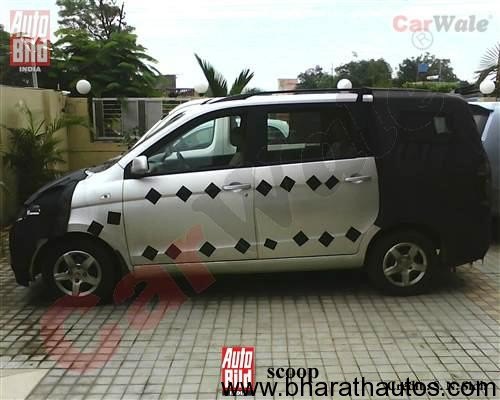
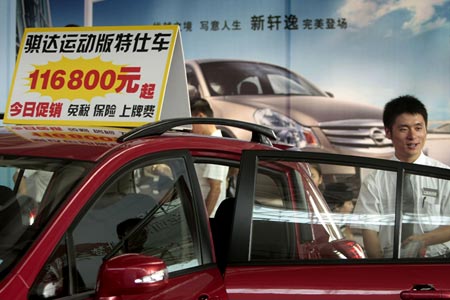

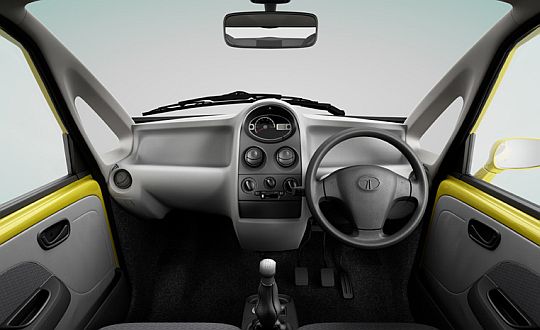
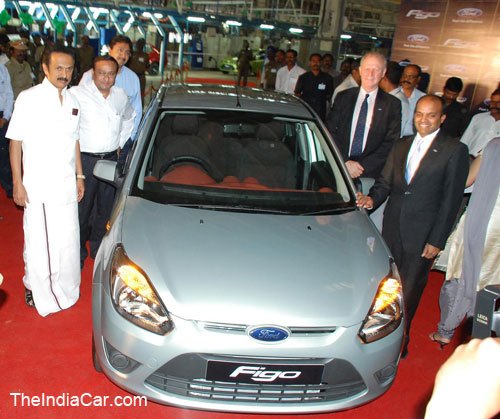
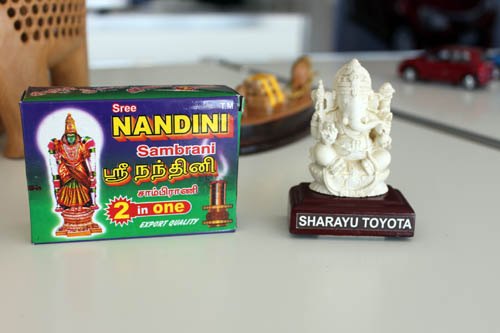
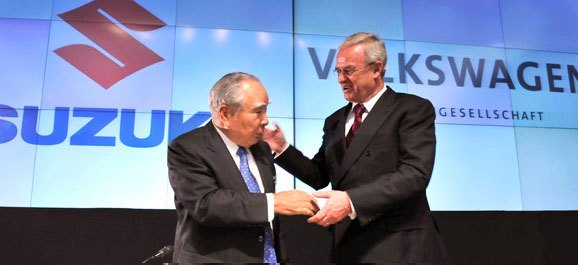
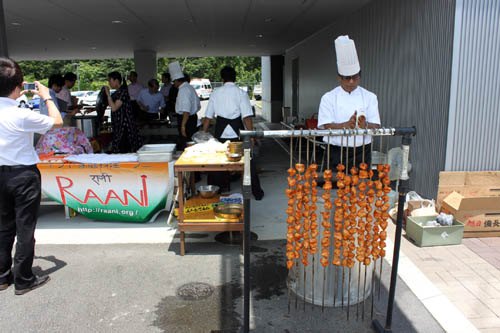












Recent Comments